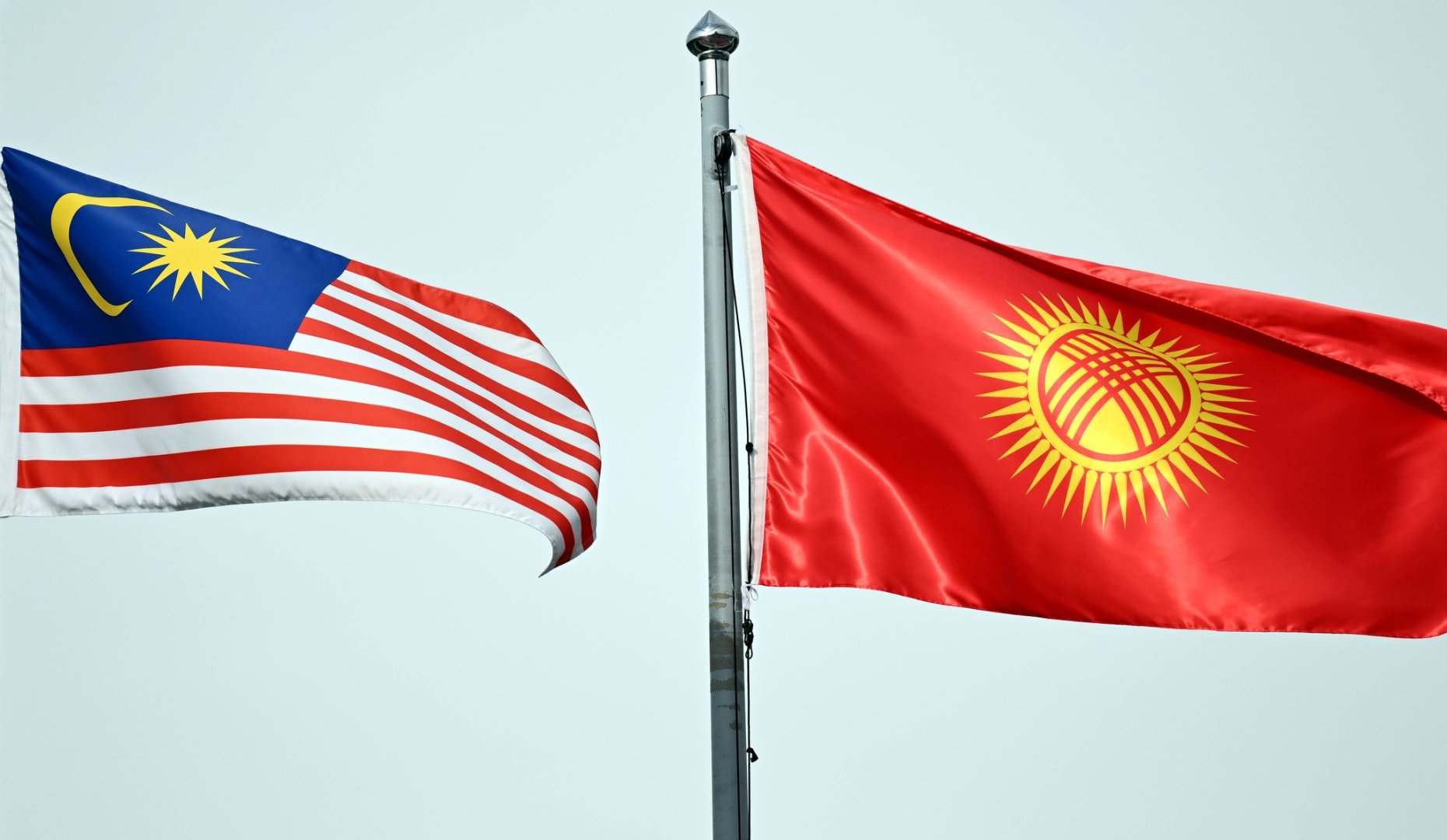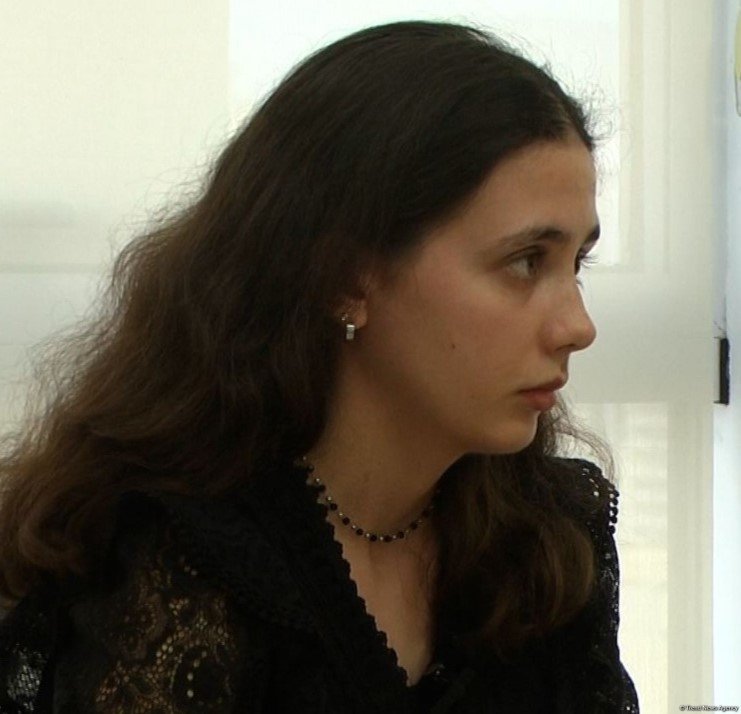BAKU, Azerbaijan, June 26. On June 25, 2025, President of Kyrgyzstan Sadyr Zhaparov paid an official visit to Malaysia—the inaugural journey of a Kyrgyz leader in three decades, Trend reports.
The visit followed up on Malaysian Prime Minister Anwar Ibrahim’s trip to Bishkek in May last year. Zhaparov’s visit marked a significant step in the development of bilateral relations and clearly indicated that Bishkek and Kuala Lumpur intend to take their cooperation to a new level.
Following the meeting between Zhaparov and Ibrahim, the two sides signed a joint statement on strengthening cooperation toward a strategic partnership for future prosperity. This step confirms the mutual interest of both countries in working together amid a changing global economy.
The bilateral economic nexus between the two nations is
experiencing a significant uptick in dynamism. During the initial
quadrimester of 2025, intergovernmental commerce experienced a
substantial escalation, amplifying nearly six times, culminating in
a total of $9.4 million. Noteworthy was the exponential escalation
in Kyrgyzstan’s export trajectory—a staggering 120-fold
amplification, transitioning from a mere $44,000 to an impressive
$5.3 million. The sole export commodity was gold, with
approximately 50 kilograms dispatched to Malaysia. Concurrently,
the influx of goods from Malaysia escalated by a factor of 2.6,
reaching a total valuation of $4.1 million.
Focused deliberations during the discussions were directed towards
the energy sector—a pivotal domain within Kyrgyzstan’s industrial
landscape. The nation is strategically advancing its hydropower
initiatives and has extended an invitation for Malaysia to
collaborate on the development of both large-scale and micro
hydropower facilities. The Kambar-Ata-1 HPP initiative on the Naryn
river is of paramount significance for Kyrgyzstan, poised to emerge
as a preeminent hydropower facility within Central Asia, boasting
an impressive installed capacity of 1,860 megawatts.
Given that more than 90 percent of the nation’s electrical output
is presently derived from hydropower facilities, and with
approximately 50 small hydropower projects slated for initiation by
2030, Malaysia’s expertise in sustainable energy could
significantly assist Kyrgyzstan in realizing its strategic
objectives. Malaysia is executing its National Energy Transition
Roadmap, which was ratified in 2023. The emphasis is on the
advancement of sustainable energy solutions, the integration of
eco-friendly practices, and the facilitation of energy
accessibility. The bilateral interests of the two nations in this
domain converge, fostering a conducive ecosystem for collaborative
initiatives.
The discourse prominently featured the significance of tourism as a
pivotal subject matter during the discussions. Kyrgyzstan has put
forth a proposition for collaborative enhancement of hospitality
infrastructure in conjunction with Malaysia. Both nations exhibit
substantial capacity for growth within the tourism industry.
Bishkek is poised to present an array of picturesque alpine vistas
and ecotourism pathways, which are experiencing a surge in
popularity. Malaysia, in a reciprocal manner, can disseminate its
expertise in the realms of medical tourism and resort
infrastructure development.
The two parties engaged in a comprehensive dialogue regarding the
advancement of the halal sector, encompassing the establishment of
halal parks, the exportation of Kyrgyz commodities such as honey,
meat, and nuts, as well as the intricacies of certification
processes and the facilitation of experiential knowledge transfer.
This domain is poised to enhance inter-economic linkages while
concurrently fostering a robust framework of mutual trust among the
nations involved.
In addition, both countries are demonstrating confident economic growth—another factor that brings them closer. In the first quarter of 2025, Malaysia’s economy grew by 4.4 percent, driven by domestic demand, investment, electronics exports, and tourism. Kyrgyzstan is showing even more impressive growth: GDP for January–May increased by 12.3 percent. According to the Eurasian Development Bank, annual growth is expected to reach 10 percent—the best indicator in Central Asia.
A stable and developing economy makes both countries more resilient to external challenges and opens up new horizons for mutually beneficial cooperation. During the visit, a package of agreements was signed in the fields of tourism, healthcare, digital technologies, and youth policy.
A key part of the visit included President Zhaparov’s meetings with Awang Bemee bin Awang Ali Basah, President of the Senate (upper house) of Malaysia, and Johari bin Abdul, Speaker of the House of Representatives (lower house) of the Malaysian Parliament. The sides discussed current cooperation issues, with a particular focus on strengthening inter-parliamentary ties.
Malaysian representatives expressed interest in systematic dialogue, experience exchange, and enhancing the institutional capacity of their parliaments, including digitalization and electronic voting. Zhaparov emphasized the importance of deepening traditional friendly relations based on mutual understanding and trust and noted the establishment of a parliamentary friendship group in Kyrgyzstan’s parliament as a sign of interest in strengthening ties.
He also invited Malaysian parliamentarians to participate as international observers in Kyrgyzstan’s parliamentary elections in 2026 and invited them to pay a return visit to Bishkek. These contacts gave new momentum to the development of inter-parliamentary dialogue and the strengthening of political cooperation between the countries.
The head of state also sat down with the bigwigs from Malaysian business circles. The meeting saw a gathering of representatives from more than 50 prominent Malaysian companies, along with various ministries and agencies in attendance.
“Kyrgyzstan is a country of new opportunities, open to the world. I am confident that our cooperation with Malaysia will become an example of successful partnership based on mutual respect, strong trust, and a commitment to sustainable development,” Zhaparov said at the meeting with the business community.
Several important documents were signed in the presence of Zhaparov. Among them was a memorandum of cooperation between the State Institution “Halal Industry Development Center” under the Ministry of Economy and Commerce of Kyrgyzstan and the company “AviaDinamika” on attracting investment for the construction of a halal meat park in Kyrgyzstan. Also signed were a memorandum of cooperation and a gold purchase agreement between Kyrgyzaltyn OJSC and the company “Public Gold Marketing Sdn. Bhd.,” as well as a memorandum of understanding between the Ministry of Energy of Kyrgyzstan and “CitaGlobal Berhad.”
In addition, a memorandum of cooperation in the development of the halal industry was signed between the Halal Industry Development Center and “PLATINUM GREENHAVEN (M) SDN BHD”, along with a memorandum of understanding and an exchange of letters of intent between the cities of Bishkek and Kuala Lumpur.
The key task now is to move beyond statements and ensure the practical implementation of the agreements reached. Plans are already in place: President Zhaparov has invited the Prime Minister of Malaysia for a return visit to Kyrgyzstan. Strengthening cooperation between the two countries is gaining momentum and has every chance to evolve into a sustainable and mutually beneficial partnership.
Thus, Zhaparov’s visit to Malaysia was an important step not only in boosting economic cooperation but also in advancing political dialogue. The signed agreements, growing trade, discussions of joint projects, and enhanced inter-parliamentary ties show that relations between Kyrgyzstan and Malaysia are reaching a new level of engagement.
Stay up-to-date with more news on Trend News Agency's WhatsApp channel







